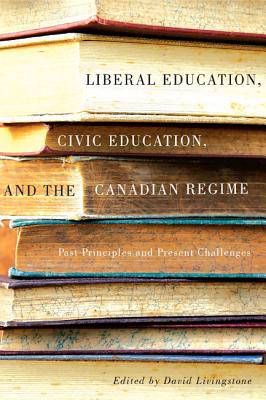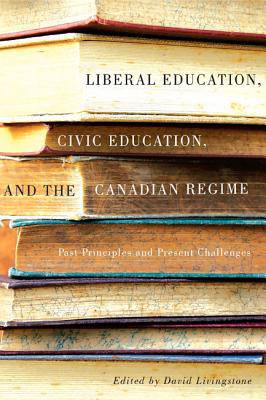
- Afhalen na 1 uur in een winkel met voorraad
- Gratis thuislevering in België vanaf € 30
- Ruim aanbod met 7 miljoen producten
- Afhalen na 1 uur in een winkel met voorraad
- Gratis thuislevering in België vanaf € 30
- Ruim aanbod met 7 miljoen producten
Zoeken
Liberal Education, Civic Education, and the Canadian Regime
Past Principles and Present Challenges
David W Livingstone
Hardcover | Engels
€ 163,95
+ 327 punten
Uitvoering
Omschrijving
Shortly after Canadian confederation, Thomas D'Arcy McGee proclaimed that education was an essential condition of our political independence and that its role was to form citizens for the new regime. Comparing this idea of education for citizenship, or civic education, to the modern goals of education, Liberal Education, Civic Education, and the Canadian Regime explores the founders' principles, their sources, and the challenges that threaten their vision for Canada. The collection's first essays analyze the political thought of early Canadians such as Brown, McGee, Ryerson, and Bourinot, while later chapters examine enduring principles of liberal democracy derived from Aristotle, de Tocqueville, and Hobbes. The final chapters bring the discussion forward to such topics as the decline of Canadian Catholic liberal arts colleges and the emerging role of our Supreme Court as a self-appointed moral tutor. Moreover, as it deals with the changing roles of universities in contemporary Canada, Liberal Education, Civic Education, and the Canadian Regime engages current debates about the value and place of a traditional liberal education and the consequences of turning our back on the concepts that inspired our founding leaders. Considering whether Canada's early documents and traditions can revive past debates and shed light on contemporary issues, this highly original collection presents education as an essential condition of our independence and asks whether current educational principles are threatening Canadians' capacity for self-government.
Specificaties
Betrokkenen
- Auteur(s):
- Uitgeverij:
Inhoud
- Aantal bladzijden:
- 304
- Taal:
- Engels
Eigenschappen
- Productcode (EAN):
- 9780773546080
- Verschijningsdatum:
- 25/09/2015
- Uitvoering:
- Hardcover
- Formaat:
- Genaaid
- Afmetingen:
- 157 mm x 229 mm
- Gewicht:
- 544 g

Alleen bij Standaard Boekhandel
+ 327 punten op je klantenkaart van Standaard Boekhandel
Beoordelingen
We publiceren alleen reviews die voldoen aan de voorwaarden voor reviews. Bekijk onze voorwaarden voor reviews.







